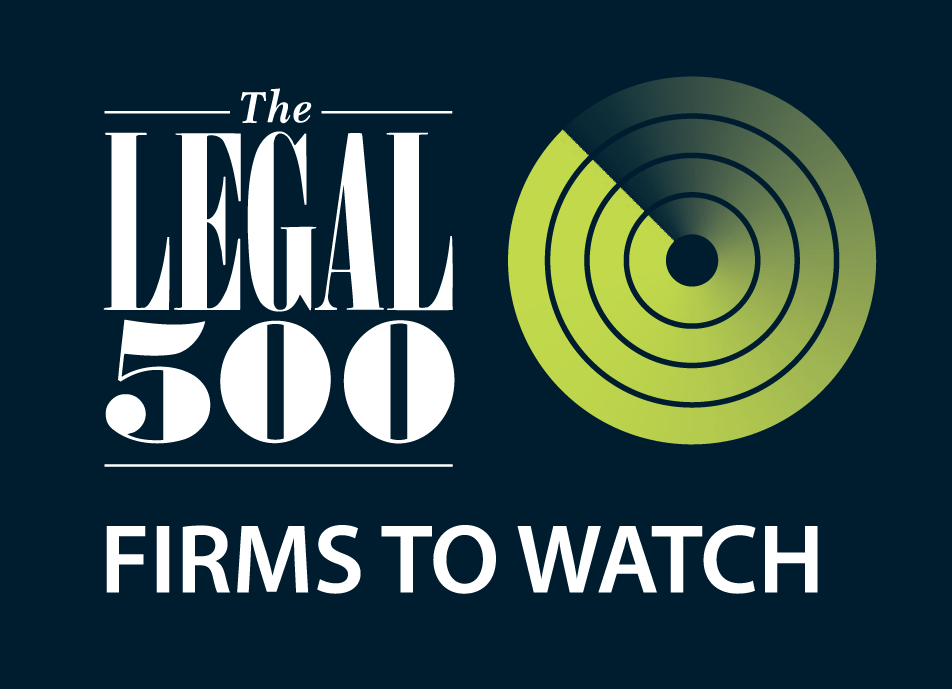Hundreds of thousands of businesses operating in the digital economy today depend on digital platforms. More and more areas of digital business are now carried out through platforms, which manage the majority of online transactions. Regulation 2019/1150/EU on “promoting fairness and transparency for business users of online mediation services” is a European Commission initiative to create a competitive framework to guarantee access to a fair, predictable and reliable online business environment in the single market, for the benefit of consumers and corporate users of platforms, by enhancing competition and encouraging the entry of new businesses on a level playing field into the online market.
The Regulation has already been in force since 12 July 2020.
The Regulation applies to (platforms that are) information society providers under Directive (EU) 2015/1535 that provide “online intermediary services” or “online search engines“, i.e. intermediaries for transactions in products and services between professionals (“business users” and “corporate website users“) and consumers. It refers to platforms that mediate transactions between business users and consumers for services and products offered by the former, as well as to search engines, i.e. any website that incorporates a search tool based on a query submitted by the user. Indicatively, platforms such as:
- App Stores (Google Play store, Microsoft Store, Apple Store)
- Online Booking Platforms (booking.com, trivago, expedia, skyscanner)
- Reviewing Sites (tripadvisor, yelp)
- Price Comparison Tools (skroutz, amazon)
- Digital Marketplaces (ebay, amazon, Google Shopping)
- Social Media for Business (Google my Business)
- and search engines such as business, entertainment, accommodation and general search sites for websites and services/products.
The Regulation seeks to adopt measures to create transparent Terms of Use and to establish effective dispute resolution systems. Provisions for the ranking of professional websites and their products or services, the timely notification to professionals of impending changes to the Terms of Use of the platform (and thus to the contractual terms governing their relationship) and the clear provision of justification for any interruption of user access to the platform play an important role in this effort. Mandatory provisions are introduced across the whole range of the content of the Platform Terms of Use, including, but not limited to, references to contractual discriminatory clauses and restrictions on offering different terms by other means (MFN Clauses), the offer of ancillary products by the platform and users and access to platform data. In addition, safeguards are introduced as regards the possibility of resolving the contractual relationship and the settlement of problems between users and between users and the platform concerned by the mandatory establishment of internal complaint management systems, the encouragement of recourse to mediation and the establishment of collective procedures in the Member States.
The points on which the Regulation focuses can be summarized as follows:
Terms & Conditions
The Regulation focuses on changing the content and accessibility of the platforms’ Terms and Conditions of Use, emphasizing the need to give users the possibility to withdraw from the platform if they do not wish to comply with the provision of their products or services by adapting them to the new technical or commercial requirements of the provider. For this reason, it is foreseen that users will be required to give timely notice (15 days before implementation) by a fixed means in order to consider the changes and terminate the contract if they so wish. In addition, in order to give users the opportunity to familiarize themselves with the Terms of Use, retroactive changes are prohibited. The Terms of Use must be accessible to users at the pre-contractual stage, written in simple and understandable language and contain all the parameters governing the contractual relationship between the platform and the user (e.g. the type of intellectual property rights, conditions for terminating the contractual relationship, technical and contractual access after termination of the relationship to data provided or created by the user, etc.).
Delisting – Restriction, Suspension, Suspension, Termination of Access
The terms relating to the delisting of products or services of users and the related restrictions on access to the platform’s services are, together with transparency, two of the most central issues of the Regulation. The provisions of the Regulation impose a mandatory reasoned notice to the user of the relevant action (suspension, restriction, delisting, etc.) of the platform 30 days prior to the implementation of the measures. The reasons for the decision notified to the user must be based on facts. It shall be accompanied by the possibility for the user to react to the platform’s objections by responding through the internal complaint handling system. This enables users to avoid any unwarranted interruption of their services or products, ensuring the uninterrupted operation of their online business.
Ranking
The provisions related to ranking transparency aim to create a more predictable business environment and a better understanding of the platform mechanism by users. It is therefore necessary for the platform to explain in detail the main parameters taken into account for the ranking of users and their websites and their importance, to mention the possibilities for the user to influence the ranking for a fee, to list any additional promotion channels used by the platform and any affiliate programs. This will enable providers to compare the practices of different providers and improve the presentation of their products.
In addition, search engines in many cases do not maintain contractual relationships with all the users they display on their websites. They may, however, take delisting or de-ranking actions upon notification by a third party (report). In the absence of a contractual relationship between search engines and users of corporate websites, the relevant description of such procedures should be made available to the public in an obvious and easily accessible location so that any user who may be viewed through them can be informed of the procedure and criteria for delisting or re-ranking. The Regulations emphasize that if registration is required of a user in order to gain access to these Terms, it shall not be deemed to have been provided in an obvious and easily accessible manner.
Recording of MFN and discriminatory clauses
In an effort to disclose the practices applied by platforms, the Regulation requires that corporate users are provided with sufficient information to be aware of any clauses regarding restrictions imposed on them in relation to offering different transaction terms in other media (sales channels). Any discriminatory policies applied by the provider or search engine to products and services offered by them or by companies controlled by them – which is particularly relevant in the case of vertically integrated companies operating in two consecutive markets in the chain – must also be disclosed to users. These measures taken in favour of own products or services may relate to any specific measures taken by the provider, access that the provider (or another controlled by it) may have to ID and/or other data, classification, fees charged to users or access to terms of use, direct and indirect fees or technical interfaces related to the user, etc. The Regulation stresses that the relevant reports do not cover the legality of the implementation of the relevant practices by platforms.
Access to platform data and data fate
Given the significant value of personal and non-personal data to the modern online economy, it often happens that the ability that a user has to access personal and other data (e.g. ratings and reviews collected by users on the platform) plays a central role in the user’s choice of platform and subsequent business planning. It therefore becomes crucial that users know whether and how they can use it to enhance their business, and in particular, that they are aware of the general conditions involved:
- access to aggregated data
- the sharing with third parties of user data
- the exclusion of the user from sharing certain categories of data
Internal complaint-handling system
The mandatory creation of a free internal complaint-handling system is established to resolve issues of alleged non-compliance of the provider, problems arising in relation to technological measures taken by the provider and affecting the complainant. The aim of the Union legislator is to ensure an effective possibility of redress by providing for equal treatment of users’ complaints in similar situations and the possibility to resolve the relevant issues bilaterally and within a reasonable period of time. Providers must give due consideration to complaints, process them quickly and efficiently, and notify the complainant of the outcome of the procedure. Small businesses are excluded from the establishment of the system.
Mediation
Providers (other than small businesses) are required to designate two or more (public or private) mediators in their Terms of Use for the out-of-court resolution of users’ disputes with providers or third parties. Access to mediation is conditional on the bona fide attendance of both parties. At the same time, the establishment of specialised mediation bodies in the Union, with knowledge of the scope of the services in the ecosystem in which the providers operate, is encouraged.
Collective Procedures & Representative Organizations for providers and users
The possibility for representative associations of users (and public bodies, see chambers of commerce) to bring collective proceedings before the courts of the Member States is established, while it is left to the Member States to regulate the modalities of representativeness. In order to prevent undue influence by providers, it is necessary to establish different organisations for users and providers, who will in addition be listed in national registers and in the relevant single register to be set up at the Commission. Finally, the identification, drafting and adoption of relevant codes of conduct by representative organizations is encouraged.
Users are not restricted from pursuing their individual interests before the courts, before or during the above procedures.
What Platforms should be aware of
- Improve the Terms of Use and adapt the relevant procedures to meet the transparency requirements for B2B transactions, in particular with regard to:
- The classification criteria for websites and products/services
- The disclosure of affiliate programmes used by the site
- The suspension, restriction and termination of the provision of the service to users and the delisting of such services and products
- The discriminatory clauses in favour of the platform’s products
- The clauses imposing restrictions on offering different terms by other means (in other channels) to users (MFN Clauses)
- Access by users to personal and aggregated data on the platform
- The sale and promotion of ancillary products and the ability of users to offer their own
- The termination of the contract, the fate of the data thereafter and the full reinstatement of users
- compliance with deadlines for notification of changes to the Terms of Use, detailed description of the criteria for deletion/suspension/termination of access to users
- Making available terms of use and at the pre-contractual stage and making publicly available the Terms of Use addressed to professionals in relation to search engines
- Establishment of an internal complaint handling system
- Designation of ombudsmen
- Identification/drafting of codes of conduct
As part of the effort to adapt competition law to the modern challenges of the digital economy, the Commission is expected to adopt in 2020 new tools and mechanisms for the enforcement of competition rules for businesses. Among other things, a review of the ex ante rules for the regulation of digital platforms in the Union has been proposed, which may include Regulation (EU) 1150/2019.






